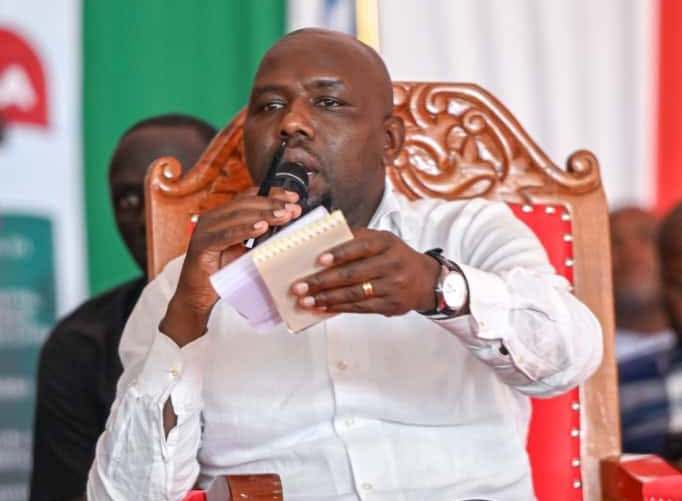
The government has announced plans to increase monthly fuel allocations for police vehicles from the current 450 liters to 650 liters in a bid to ease operational challenges facing officers across the country.
Interior Cabinet Secretary Kipchumba Murkomen made the commitment during a Jukwaa la Usalama forum held in Homa Bay County, after officers raised concerns about frequent fuel shortages that leave police vehicles grounded before the end of every month.
According to Murkomen, the adjustment will be implemented under the ongoing police vehicle leasing program.
During the forum, an Officer Commanding Station (OCS) in Kendubay revealed that the current 15 liters per day per vehicle allocation, amounting to 450 liters a month, is grossly inadequate.
He said in most cases, the allocation runs out as early as the 18th of every month, leaving officers stranded and forced to seek help from elsewhere.
“To be honest, sir, like my station in Kendubay, by the 18th of every month, I am already through with the fuel allocation. Sometimes we are forced to ferry prisoners to court up to five times a week, and this quickly drains the supplies,” the OCS said.
Murkomen acknowledged the frustrations, noting that fuel shortages have fueled public misconceptions about police conduct.
“When our police officers tell wananchi that ‘gari haina mafuta, hatuwezi kuja,’ people think the officer is asking for a bribe, but that is not true,” said Murkomen.
“Because of the leasing programme, each vehicle gets 450 liters a month, and within 20 days, imeisha.”
The CS explained that the situation is even worse in remote areas where officers must travel long distances just to collect fuel.
“For example, when a police officer in Kibish travels all the way to Kitale to collect fuel, by the time he returns, the allocation cannot last beyond 10 days. The vehicle then stays grounded for the rest of the month,” he added.
To address the problem, Murkomen said the government will not only raise the allocation to 650 liters but also decentralise supply points.
He cited Marsabit and Moyale as examples of regions that will soon access fuel locally instead of travelling to distant towns like Nanyuki.
“We have said two things. One, we are working on increasing the allocation to 650 liters. But number two, for counties that are far and expensive, fuel should be delivered closer so that operational work is not wasted on long trips to collect supplies,” he explained.











